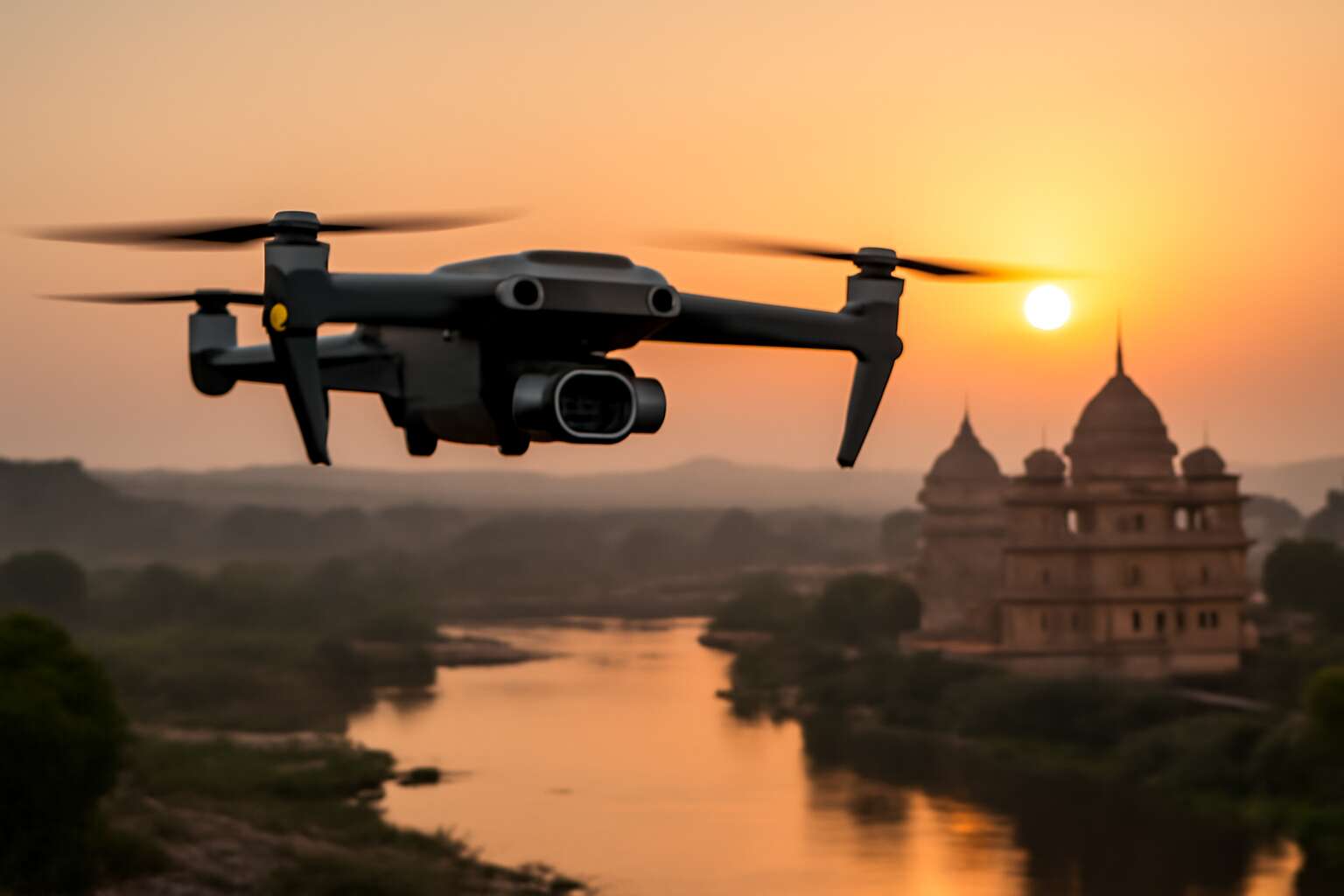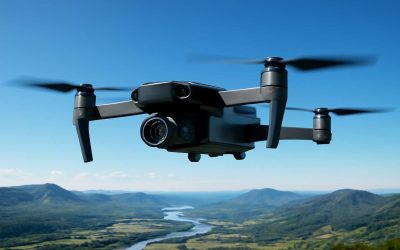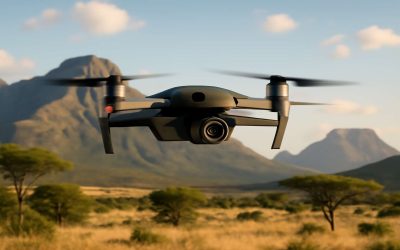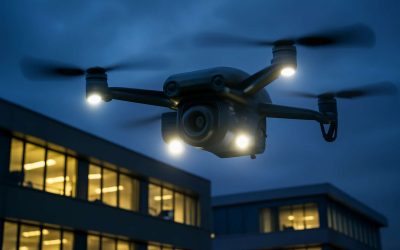Understanding Drone Regulations in India
Overview of Drone Laws in India – History and evolution of drone regulations
India’s journey with drone regulation reflects a cautious yet progressive approach, aimed at balancing innovation with safety. Initially, the absence of specific laws left many wondering, “are camera drones legal in India?” As the technology advanced, authorities recognized the need for a structured framework to govern their use. This evolution has been marked by a series of milestones, from the initial draft drone policy to the formal regulations introduced in recent years.
In 2018, the Directorate General of Civil Aviation (DGCA) launched the Drone Rules, which marked a significant shift towards a more organized regulatory landscape. These rules streamlined registration processes and established clear categories for drone operations, especially for commercial and recreational purposes. It’s crucial for drone enthusiasts and professionals to understand these regulations because they directly influence whether their activities, including flying camera drones, are considered legal in India.
Today, the regulatory environment is designed to foster responsible drone use while safeguarding airspace integrity. For those wondering if they can legally operate camera drones in India, understanding this historical and legal backdrop is essential. The evolving drone laws continue to shape the landscape, making it imperative for users to stay informed about the latest updates and compliance requirements.
Regulatory Authorities – Role of Directorate General of Civil Aviation (DGCA) and other agencies
When it comes to navigating the aerial maze of drone regulations in India, the role of the Directorate General of Civil Aviation (DGCA) is nothing short of pivotal. Think of DGCA as the air traffic controller for drone activities—except instead of managing planes, they’re setting the rules for everything from tiny camera drones to massive commercial UAVs. Their primary mission? Ensuring that drone operations don’t turn into a Bollywood-style chaos in the skies.
Besides DGCA, other agencies like the Indian Air Force and local authorities also keep a watchful eye, especially when it comes to security and privacy concerns. They work together to craft a regulatory ecosystem that’s as balanced as a well-placed drone shot. To help enthusiasts and professionals alike, the DGCA introduced a structured framework with clear categories for drone registration, operational limits, and safety protocols—making it easier to answer the burning question: are camera drones legal in India?
- Understanding who enforces these laws is crucial for anyone eager to take their camera drone for a spin, because compliance isn’t just a good idea—it’s the law.
So, whether you’re a hobbyist capturing scenic vistas or a business deploying drones for commercial purposes, knowing the role of DGCA and allied agencies is key. They’re the gatekeepers of the Indian skies, ensuring your drone adventures stay above board and well within legal bounds—because nobody wants to be caught flying a camera drone into a no-fly zone, especially not without the proper permissions!
Classification of Drones – Categories based on weight and purpose
Understanding drone regulations in India begins with the classification of drones—an intricate system designed to simplify compliance and safety. The DGCA categorizes drones primarily based on their weight and intended purpose, creating a structured framework that guides operators through the legal maze. At the heart of this classification lies a simple yet profound question: are camera drones legal in India? The answer hinges on knowing where your drone fits within these categories.
For instance, lightweight drones under 250 grams, often used for casual photography, generally enjoy relaxed regulations but still require registration in some cases. Conversely, drones exceeding 2 kilograms, especially those used for commercial purposes, are subject to strict approval processes. This layered approach ensures that each drone type is monitored according to its potential impact on privacy, security, and safety.
- Lightweight Drones (up to 250 grams): Typically used for recreational photography with minimal restrictions.
- Small Drones (250 grams to 2 kilograms): Require registration and adherence to operational guidelines.
- Commercial Drones (above 2 kilograms): Necessitate permissions, flight plans, and safety protocols.
By understanding these categories, drone enthusiasts and professionals alike can navigate the complex legal landscape with confidence, clarifying whether their camera drone activities are within the bounds of Indian law. The classification system not only demystifies the regulatory process but also underscores the importance of compliance—because in India, the skies are governed by rules as precise as a well-calibrated camera lens.
Legal Status of Camera Drones in India
Permissions Required for Operating Camera Drones – Registration, approvals, and permits
As the popularity of camera drones soars across India, a common question lingers: are camera drones legal in India? The answer is nuanced. The Indian government, through the Directorate General of Civil Aviation (DGCA), has established a regulatory framework to oversee drone operations. While recreational use may seem straightforward, commercial applications demand strict adherence to registration, approvals, and permits. The legal landscape is evolving, but clarity around permissions is crucial for anyone considering flying a camera drone in India.
Operating a camera drone in India requires compliance with specific procedures. Drone owners must register their devices with DGCA and obtain an Unmanned Aircraft Operator Permit (UAOP) if the drone exceeds certain weight thresholds. Additionally, flying in restricted airspace or near sensitive locations mandates prior approval from authorities. Failing to secure these permits can lead to hefty fines or legal action, underscoring why understanding the permissions required for operating camera drones is vital in India’s regulated environment.
Specific Rules for Camera Drones – Restrictions on privacy, altitude, and no-fly zones
The legal status of camera drones in India is a topic that continues to evolve as technology advances and their popularity surges. While recreational drone flying might seem like a freeing hobby, the reality is that strict regulations govern where and how these devices can be operated. The Indian government, through the DGCA, has implemented a framework designed to balance innovation with safety and privacy concerns.
Specific rules for camera drones are particularly focused on restrictions related to privacy, altitude limits, and no-fly zones. The government has designated certain areas, such as airports, military installations, and government buildings, as no-fly zones. Flying a drone in these restricted zones without prior approval can lead to severe penalties. Moreover, regulations impose altitude restrictions to prevent interference with manned aircraft, usually capped at 400 feet above ground level.
Additionally, privacy concerns are paramount. The use of camera drones to capture images or videos of private properties or individuals without consent can breach privacy laws and invite legal action. To enforce these rules, authorities have established clear guidelines and monitoring systems. For anyone asking, are camera drones legal in India? The answer hinges on adherence to these restrictions and obtaining necessary permissions, especially for commercial use.
Types of Camera Drones Allowed – Commercial vs. recreational use
In the vast skies of India, the question of whether camera drones are legal in India has become a hot topic among enthusiasts and professionals alike. The government’s approach to regulating drone activities is nuanced, balancing innovation with safety and privacy concerns. When it comes to the types of camera drones allowed, the distinctions between commercial and recreational use are crucial.
Recreational drone flying, often seen as a hobby, is permitted under certain conditions, provided operators adhere strictly to altitude limits and no-fly zones. However, commercial use of camera drones demands a more rigorous process, including registration and obtaining necessary permits. The distinction ensures that those seeking to harness drone technology for business purposes follow a clear legal pathway, making the skies safer and more regulated.
For anyone pondering the legality of camera drones in India, understanding these categories is vital. Commercial camera drones are usually larger, equipped with high-end cameras, and require explicit permissions, while smaller, lightweight drones for personal use enjoy a slightly more relaxed regulatory environment. The evolving framework aims to foster innovation without compromising the nation’s security and privacy.
Regulations Governing Photography with Drones
Privacy and Consent – Legal considerations when capturing images or videos
As the skies buzz with the hum of camera drones, questions about their legality in India become increasingly urgent. With the rise of aerial photography, understanding the legal nuances surrounding privacy and consent is essential. Unauthorized capturing of images or videos can lead to serious legal repercussions, especially if it infringes on an individual’s privacy rights. In India, drone regulations emphasize respecting personal boundaries, making it crucial for operators to be aware of the legal framework governing drone photography.
When flying camera drones, always consider the legal considerations for privacy and consent. It is advisable to seek permission before capturing images of private property or individuals, as failure to do so could violate privacy laws. The Indian legal system prioritizes individual privacy, and drone operators must navigate these complexities carefully. Furthermore, drone operators should be familiar with restrictions related to no-fly zones and altitude limits to avoid legal entanglements. Compliance is not just about following rules but also about respecting the rights and privacy of others, ensuring that the question, are camera drones legal in India, remains a clear yes when operated responsibly and within legal bounds.
No-Fly Zones – Restricted areas for drone operation
In the shadowy realm of aerial surveillance, the question lingers like a specter—are camera drones legal in India? The skies are increasingly dotted with these metallic sentinels, yet the labyrinthine regulations cast a long, dark shadow over their freedom of flight. Certain no-fly zones in India serve as invisible barriers, guarding sensitive airspace from unwelcome intrusion. These restricted areas include military installations, government buildings, and strategic zones where drone operation is strictly prohibited, ensuring that the ethereal dance of drones does not trespass into forbidden territory.
Understanding these boundaries is crucial for any operator. The Directorate General of Civil Aviation (DGCA) delineates these sanctuaries, mandating adherence to altitude restrictions and no-fly zones. To navigate this perilous landscape, drone enthusiasts must heed official maps and alerts, lest they fall prey to legal repercussions that lurk in every unauthorized crossing. The question, ‘are camera drones legal in India?’ becomes a matter of respecting these invisible borders—operating within the permitted airspace, respecting privacy, and avoiding restricted zones, all while embracing the dark allure of the skies.
Altitude and Distance Limits – Operational boundaries for safety and privacy
Operating camera drones in India is bound by strict regulations designed to balance technological advancement with safety and privacy. The DGCA has established clear altitude limits—generally keeping drone flights below 400 feet—to prevent interference with manned aircraft and protect sensitive airspace. These operational boundaries are not arbitrary; they serve to safeguard both the public and critical infrastructure.
For drone pilots, understanding these rules is essential. The permissible distance from populated areas and restricted zones must be meticulously observed to avoid legal complications. In fact, the regulations stipulate that drone operators must maintain visual line of sight at all times, which inherently limits how far a drone can fly.
Since drone laws are evolving rapidly, staying informed through official updates is vital. The question ‘are camera drones legal in India?’ hinges on strict adherence to these altitude and distance limits—operating within legal boundaries ensures safe, responsible flight and respects privacy rights.
Legal Risks and Penalties for Non-Compliance
Fines and Imprisonment – Legal consequences of unauthorized drone use
Flying your camera drone in India without proper authorization isn’t just risky—it’s a potential ticket to legal trouble. The Directorate General of Civil Aviation (DGCA) has made it crystal clear that unauthorized drone use can result in hefty fines or even imprisonment. Think of it as a zero-tolerance policy for unregulated aerial antics. The government’s stance is firm: if you’re caught operating a camera drone without the necessary permissions, you could face severe penalties that serve as a stark warning to others contemplating a covert drone adventure.
Legal risks aren’t limited to fines. In India, the penalties for unauthorized drone operation can include imprisonment, especially if the drone is used for activities that threaten national security or violate privacy laws. The authorities are increasingly vigilant, and their drone radar is sharper than ever. To put it simply, the question “are camera drones legal in India?” has a complex answer—yes, but only if you adhere strictly to the regulations. Otherwise, you risk facing serious legal consequences that could disrupt more than just your drone flights.
Confiscation of Equipment – When and how authorities seize drones
Operating a camera drone in India without proper authorization can lead to serious legal repercussions. Authorities are increasingly vigilant, and their ability to seize unauthorized drones is well-established. When drones are confiscated, the process is often swift and decisive, especially if the drone is used in restricted zones or for activities that breach privacy laws. The Directorate General of Civil Aviation (DGCA) has made it clear that non-compliance isn’t just a minor infraction—it can result in the outright confiscation of equipment, which can be a significant setback for drone enthusiasts and professionals alike.
Typically, the authorities will seize drones found operating illegally during routine checks or in no-fly zones. They may also confiscate equipment if the drone is used without the necessary registration or permits. In some cases, the confiscation may be temporary, but repeated violations could lead to permanent seizure and further legal action. The process underscores the importance of understanding the legal landscape surrounding drone use in India and adhering strictly to the regulations that have been put in place. The question “are camera drones legal in India?” is nuanced—legal, yes, but only when operated within the boundaries defined by law. Failure to comply invites not just penalties but the loss of your valuable equipment, making it a stark reminder of the importance of responsible drone operation.
Liability in case of Accidents – Legal responsibilities and insurance considerations
Operating a camera drone in India without adhering to the legal framework can expose you to severe liabilities. The legal risks are not merely administrative; they can escalate to criminal charges if your drone causes damage or breaches privacy laws. In the event of an accident, the liability shifts squarely onto the operator, who may face hefty fines or even imprisonment. Insurance coverage for drone operations is often a grey area, and many policies exclude liabilities arising from illegal activities.
The Directorate General of Civil Aviation (DGCA) emphasizes strict compliance, warning that unauthorized use may lead to the confiscation of equipment. Moreover, repeated violations could result in permanent bans and legal proceedings. The question “are camera drones legal in India?” remains nuanced—legal, yes, but only when operated within prescribed boundaries. Ignorance of these regulations can be costly, both financially and in terms of reputation, underscoring the importance of responsible drone operation.
Future Trends and Changes in Drone Regulations
Upcoming Legal Reforms – Expected updates in drone laws
As technology advances at a staggering pace, the landscape of drone regulations in India is poised for a significant transformation. Anticipated legal reforms aim to strike a delicate balance between fostering innovation and safeguarding national security, privacy, and airspace safety. Experts suggest that upcoming updates will likely introduce more nuanced categories for different drone types, including specialized rules for camera drones used in commercial and recreational settings.
Moreover, the government is exploring the possibility of establishing a comprehensive digital registry for drone operators, which could streamline the permit process and enhance accountability. Transparency in drone regulations is expected to improve, with authorities emphasizing responsible drone operations to minimize risks and unauthorized use.
- Enhanced privacy protections, especially concerning camera drones used for capturing images or videos in public and private spaces.
- Clearer boundaries on altitude and operational distances, ensuring safe integration of drones into crowded urban environments.
- More rigorous enforcement measures, including stricter penalties for violations and unauthorized drone activities.
While the future of drone laws in India looks promising, questions about the legality of camera drones continue to evolve, making it crucial for enthusiasts and professionals alike to stay informed about the latest legal developments. Are camera drones legal in India? The answer hinges on adherence to these upcoming reforms and understanding the precise scope of permitted activities within the country’s dynamic regulatory framework.
Technological Advances and Compliance – How new drone tech impacts legality
As drone technology evolves at a breakneck pace, the future of drone regulations in India promises a fascinating blend of innovation and oversight. With advancements in camera drone capabilities—such as higher resolution imaging and longer flight times—the question of are camera drones legal in India becomes increasingly nuanced. Regulators are keen to ensure that new tech does not outpace legal frameworks, which is why upcoming reforms aim to introduce more refined categories for different drone types, including specialized rules for camera drones used in both commercial and recreational contexts.
One notable trend is the push toward integrating cutting-edge technology with compliance measures. For instance, authorities are exploring the implementation of digital registries for drone operators, simplifying permit procedures while boosting accountability. As regulations tighten, drone manufacturers and users alike must stay vigilant, especially as privacy protections are heightened and operational boundaries clarified. The growing sophistication of drone tech makes it essential for enthusiasts to understand how innovations impact the legality of camera drones in India—after all, the skies are becoming increasingly crowded, and legal clarity is paramount.
Industry Impact and Opportunities – Business prospects within legal frameworks
Future trends in drone regulation in India are poised to redefine the landscape of aerial innovation. As technological breakthroughs unfold—bringing higher resolution cameras, extended flight times, and smarter autonomous features—the industry faces a critical juncture. The question of **are camera drones legal in India** is becoming more layered, prompting authorities to craft nuanced policies that balance technological progress with societal safeguards.
One promising development is the move toward establishing distinct legal categories for different drone types. This approach aims to streamline permits and clarify operational boundaries for commercial and recreational users alike. Additionally, integrating digital registries for drone operators promises to enhance accountability, making it easier to enforce compliance in a rapidly evolving environment.
The industry’s future also hinges on embracing opportunities within these legal frameworks. Businesses specializing in aerial photography, surveying, and mapping are uniquely positioned to thrive as regulations become more sophisticated and transparent. As the skies grow busier, understanding how upcoming reforms will impact the legality of camera drones in India becomes essential—fostering innovation while safeguarding privacy and safety.
Tips for Legally Operating Camera Drones in India
Registration and Documentation – Steps to ensure legal compliance
Operating a camera drone in India requires more than just owning the device; it demands strict adherence to legal protocols that safeguard privacy, security, and airspace. To ensure your drone activities are fully compliant with Indian laws, proper registration and documentation are essential. This process not only legitimizes your drone operation but also helps avoid hefty fines or legal trouble. When registering your drone, you must provide details such as the drone’s make, model, weight, and intended use, whether for recreational or commercial purposes. Additionally, securing necessary permits from the Directorate General of Civil Aviation (DGCA) is a pivotal step in establishing legal compliance.
In India, the regulatory framework is designed to create a balanced environment where drone enthusiasts and professionals can operate safely. To navigate this landscape seamlessly, consider these vital steps:
- Complete the online registration process through the Digital Sky Platform.
- Obtain a Unique Identification Number (UIN) for your drone.
- Secure relevant permits if you’re operating in restricted zones or for commercial purposes.
By diligently following these registration and documentation procedures, you not only answer the question of whether camera drones are legal in India but also ensure your drone activities remain within the bounds of law, fostering responsible innovation and aerial exploration.
Best Practices for Safe and Respectful Drone Use – Operational tips to avoid legal issues
Operating a camera drone in India is akin to navigating a labyrinth—full of twists, turns, and occasional minotaurs in the form of legal pitfalls. To avoid becoming the star of a legal horror story, drone pilots must adhere to best practices for safe and respectful drone use. While the skies may seem inviting, they’re peppered with no-fly zones and altitude limits that demand respect.
One of the easiest ways to stay on the right side of Indian drone laws is to respect privacy and obtain necessary consent when capturing images or videos. Flying too high or venturing into restricted areas can lead to hefty fines or even confiscation of your prized drone. To keep your aerial adventures trouble-free, consider these operational tips:
- Always verify the latest no-fly zones on the Digital Sky Platform to ensure your drone isn’t trespassing into forbidden territory.
- Maintain a safe distance from crowds and sensitive infrastructure; it’s not just good manners, but also a legal safeguard.
- Keep your drone within the permitted altitude and distance limits—going beyond might turn your hobby into a costly legal saga.
Remember, responsible drone use isn’t just about avoiding fines; it’s about fostering a culture of safe and respectful aerial exploration. When in doubt, transparency and adherence to regulations keep your drone flights both lawful and enjoyable. After all, the sky’s the limit—so long as you stay within Indian legal boundaries!
Seeking Legal Advice and Staying Updated – Resources for current regulations
Navigating the labyrinthine landscape of Indian drone law demands more than just enthusiasm; it requires a meticulous understanding of the ever-evolving regulatory framework. As the drone industry accelerates, questions surrounding “are camera drones legal in India” become increasingly pertinent. Staying abreast of current regulations is essential for anyone seeking to operate within the bounds of the law, especially given the rapid technological advances that continually reshape permissible boundaries.
Seeking legal advice from qualified authorities or consulting legal experts specializing in aviation law can provide clarity amidst the complex statutory maze. Additionally, resources such as the Digital Sky Platform serve as invaluable repositories of current no-fly zones, altitude restrictions, and operational guidelines. Regularly checking these authoritative sources ensures your drone activities remain compliant, avoiding the peril of fines or confiscation.
Given the nuanced nature of drone legislation, engaging with official updates—whether through DGCA notifications or industry bulletins—can help pilots adapt swiftly to legal reforms. After all, knowledge remains the most potent safeguard against inadvertent violations when contemplating “are camera drones legal in India.”




0 Comments